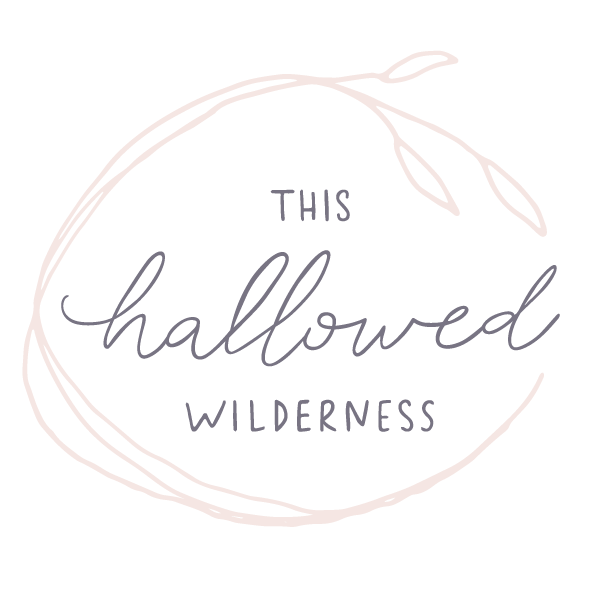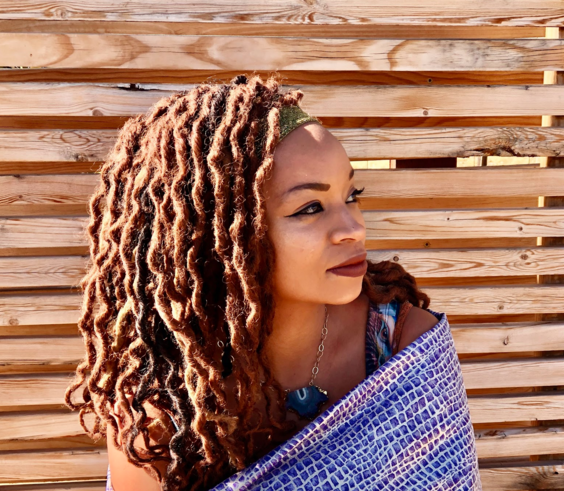Heather Archer: be courageous enough to revisit your pain
This post is part of a Grief Care series, featuring BIPOC healers across multiple traditions and modalities. Each week will spotlight a different healer, sharing their work, how they’re meeting these deeply challenging times, the grief they’re carrying and how they’re tending to it, and what it means to hold space for their communities at the intersections of healing and justice.
Today, I talk with Heather Archer, sound healer, plant priestess, educator and co-founder of Black Healers Connect, which seeks to empower people of color to reclaim ancestral wisdom as a tool for personal and collective liberation.
“Sound helps you to remain present even when it’s challenging,” says Heather Archer.
Do you have a personal philosophy or belief about healing?
Healing requires pausing, it isn't linear and it's never complete. Everyone's healing journey will be different and that's ok. Healing doesn’t have a timeline.
You refer to yourself as a “healing strategist.” What does that embody for you and how does it inform your approach to your work?
For the past 15 years, I've dedicated my work and study to the process of healing. My training is in education but I have found ways to approach teaching from a healing-centered framework. Healing Center Engagement is a framework developed by Dr. Shawn Ginwright and Nedra Ginwright, founders of Flourish Agenda, Inc. One major concept I’ve learned from this work is that adults who support children and young people usually need more healing than the youth themselves.
Traditionally, the system of education has focused primarily on intellectual pursuits, which is important but incomplete. My work as a healing strategist emerged through finding ways to insert holistic wellbeing in youth education. Further along in my career, I have shifted my focus by supporting adults to infuse healing practices in their own lives as well with the help of my work with Flourish Agenda, Black Healers Connect and my sound healing practice.
You were called to this work through your own journey recovering from a childhood filled with substance abuse, mental health challenges and other traumas. What did you learn about grief and healing through that journey?
I can’t exclude my personal background from my healing story and that includes my identity as a Black American woman. There is a great deal of beauty in this legacy and there is also a great deal of pain. Intergenerational trauma is unhealed trauma that gets passed down from generation to generation. The more trauma that is compounded, the more layers of pain that emerge. I come from a family that holds a lot of pain and grief but never learned the tools to heal that pain and grief. After several years of reflection and undergoing my own healing process, I understand that my parents are human beings first and foremost and all human beings are flawed.
My biggest lesson about grief through my childhood experiences is that you must be courageous enough to revisit pain so that it can be healed and so trauma can be interrupted.
As a woman of color in the field of healing and wellness, what feels most essential to you about doing this work?
REST. Why rest? We as Black women have been conditioned to think that we have to do it all. It has even been referred to as the “superwoman” complex. We get called strong and resilient a lot and many times that’s not helpful. I focus on the field of healing and wellness to help create a society that intentionally carves out spaces for healing, well-being and rest for women of color, because we are all worthy of rest.
What do you want to create more awareness and opportunity around?
Outside of rest, I'm always very passionate about the healing powers of sound and I am happy to share my sound-healing practice through one-on-one and group therapeutic sound immersions that integrate crystal bowl sound healing, chakra alignment and mindfulness.
Given the great upheaval and suffering we’ve either endured and/or witnessed during the last several months, what are the griefs you’ve been sitting with?
I am grieving for the incredible loss of life of communities of color at this time due to a political administration that puts profit over the well-being of its citizens, as well as a country that has historically used its rules and policies to oppress people of color. The grief and anger run deep, but I am alchemizing it into fuel to heal myself and my community.
How are you tending to your grief?
I'm resting by taking lots of salt baths, practicing yoga, taking walks and spending time with my family. I’m harvesting herbs, making lots of smudge sticks, giving sound healings, and am allowing for spaciousness in my calendar.
How are you helping your clients not only process their grief but in some cases recognize that what they’re feeling may be grief?
First of all, I assure them that there is no one way to grieve. I also encourage my clients to prioritize the wisdom of their bodies over the wisdom of their minds. Our bodies know what we need and we need to cultivate a culture in which it's OK to listen to the needs of your body.
Is there anything that often surprises people about grief in this work?
What surprises people about grief is that it’s never final. Society trains us to believe that once your grieve, you don't need to grieve anymore and that’s simply not true.
You rely on the integration of multiple modalities and practices in your care from somatics and sound healing to coaching, ancestral wisdom and yoga: what might a typical client session entail?
My therapeutic sound immersions usually include: crystal bowl sound healing, chakra alignment, mindfulness and journal reflection.
Are there modalities that you’ve found make it easier for people to access and process their grief?
My two favorite forms of healing are sound and writing. Sound helps you to remain present even when it’s challenging and writing helps you purge pent up emotions.
What role does ancestral healing and wisdom play in processing grief?
It plays a very large role. As mentioned earlier, grief is intergenerational. The grief of my great-grandparents lives inside of me as well. In addition, the healing modalities that they had access to, I have access to as well. Ancestral wisdom is critical when processing and addressing grief.
If you could offer one piece of healing advice to people of color at this time, what would it be?
I would say it’s OK to pause. You don't have to hold and comfort the whole world. It’s OK to stop, take breaks, and experience moments of joy even when it seems like the world is on fire.
BIO
Heather is an educator, plant priestess and sound healer who has 15 years of experience cultivating healing-centered approaches for institutions geared toward social good. She is the Co-Founder of Black Healers Connect, with Monica Cadena. Black Healers Connect connects healers across the African diaspora to share ancestral wisdom to restore ourselves and our communities. Additionally, she serves as the Director of Healing Centered Engagement with Flourish Agenda, an educational consulting firm that helps educators to deepen the quality of their relationships with students and staff through transformational trainings and retreats.
Heather possesses a B.A. in African American Studies from Smith College and an M.A. of Educational Leadership, Policy and Advocacy from New York University. She is also enrolled in a Yoga Teacher Training program to enhance opportunities to transmute intergenerational trauma into healing. You can learn more about her work by visiting her website.



